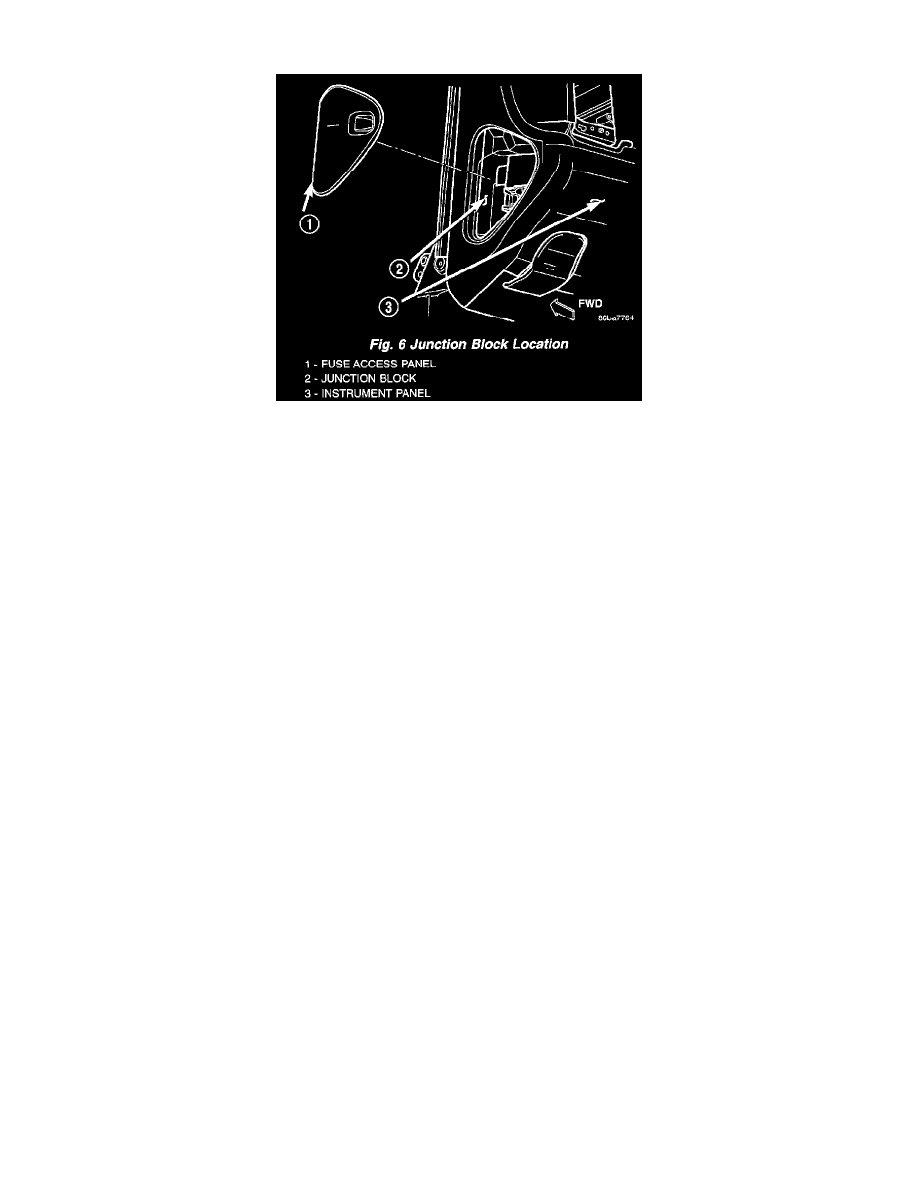Dakota 2WD L4-25L Fuse Block Component Info - Page 4565

Fuse Block: Description and Operation
Fig.6 Junction Block Location
An electrical Junction Block (JB) is concealed behind the left outboard end of the instrument panel cover (Fig. 6). The JB serves to simplify and
centralize numerous electrical components, and to distribute electrical current to many of the accessory systems in the vehicle. It also eliminates the need
for numerous splice connections and serves in place of a bulkhead connector between many of the engine compartment, instrument panel, and body wire
harnesses. The JB houses up to nineteen blade-type fuses (two standard-type and seventeen mini-type), up to two blade type automatic resetting circuit
breakers, and two International Standards Organization (ISO) relays (one standard-type and one micro-type).
The molded plastic JB housing has integral mounting brackets that are secured with two screws to the left instrument panel end bracket. The left end of
the instrument panel cover has a snap-fit fuse access panel that can be removed for service of the JB. A fuse puller and spare fuse holders are located on
the back of the fuse access cover, as well as an adhesive- backed fuse layout map to ensure proper fuse identification.
The JB unit cannot be repaired and is only serviced as an assembly. If any internal circuit or the JB housing is faulty or damaged, the entire JB unit must
be replaced.
All of the circuits entering and leaving the JB do so through up to nine wire harness connectors, which are connected to the JB through integral
connector receptacles molded into the JB housing. Internal connection of all of the JB circuits is accomplished by an intricate combination of hard wiring
and bus bars. Refer to Junction Block for the location of complete JB circuit diagrams.
